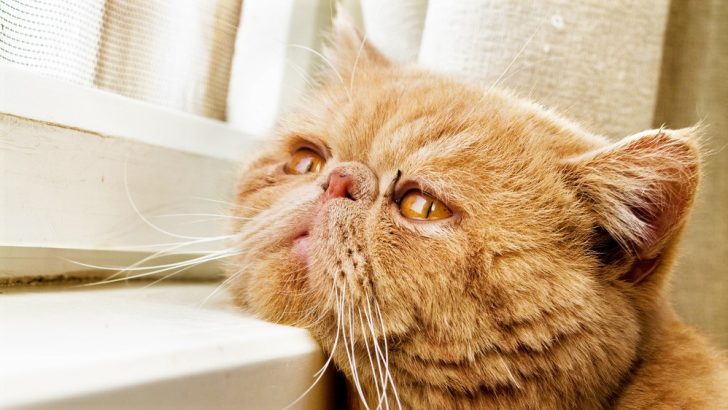Our feline friends can show some weird behavior from time to time. As a cat parent, you get used to them napping the whole day and then having a sudden burst of energy, running all over your apartment and furniture. But when does their behavior become a cause for concern, and can a cat be bipolar?
Listen, your kitty might be all over the place, but that doesn’t mean there’s something wrong with her. Our four-legged buddies are simply weird sometimes, and we love them because of it. One minute, they’re cuddling you and the next they’re hissing and ignoring you. They know how to surprise you, that’s for sure.
Every cat parent knows that our fur babies are temperamental, and we learn to deal with it the best way we know how. But, sometimes, that type of behavior is not something you should normalize. Because they’re so mysterious, some mental disorders in cats are often ignored and left untreated.
So, can a cat be bipolar? If so, what are some signs that your kitty might be suffering from this illness? We’re here to answer all of your questions, so let’s learn together.
What is bipolar disorder?
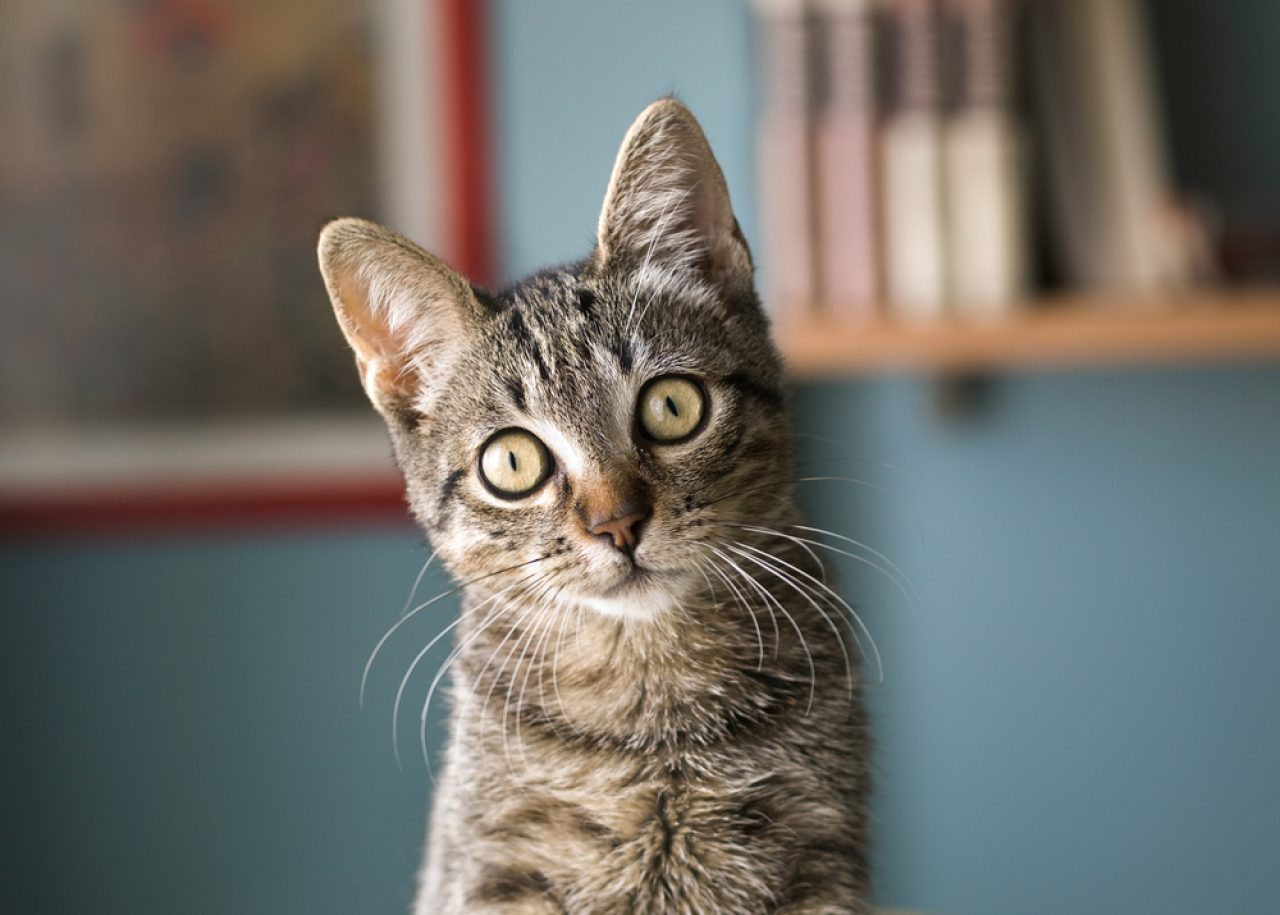
Everyone knows how difficult bipolar disorder can be in humans. Also known as manic depression, this is a serious condition that greatly affects the lives of those who suffer from it. Because of the mood swings it causes, it results in deep lows or manic highs.
Luckily, bipolar disorder in humans is treatable. Nowadays, people who suffer from this mental condition can live a normal life free of extreme mood swings. Felines, on the other hand, show mood swings as a natural part of their character. It’s in their nature to be temperamental and slightly moody. So, can a cat be bipolar?
Can a cat be bipolar?
In short – yes, cats can suffer from bipolar disorder. However, because of their natural mood swings and temperament, they’re rarely diagnosed with it. When a feline is dealing with this condition, there will be some differences compared to normal behavior.
The only problem is – people get used to their kitty’s mood changes. They might see it as quirkiness and simply a part of her character. Some cat breeds, such as Abyssinians, are more prone to developing this type of illness, although still very rare. This is often due to genetics or hormonal disbalances.
What are some signs of bipolar disorder in cats?
Because of their naturally odd behavior, it’s easy to miss the symptoms of bipolar disorder in cats. Luckily, there are some signs that might indicate it, so let’s go through them together.
1. Mood swings
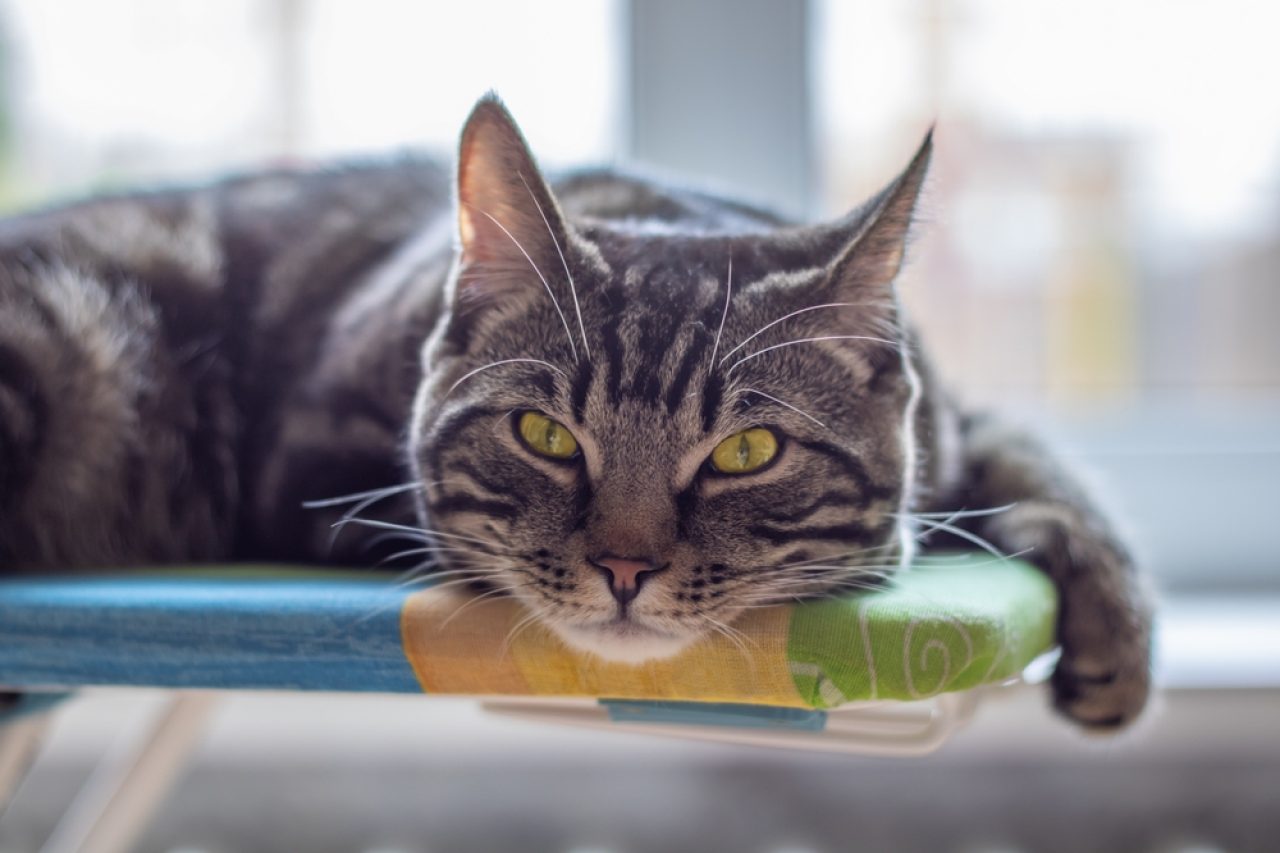
Every cat parent knows it’s normal for our four-legged friends to change their behavior from time to time. However, if their mood swings are instantaneous, it might be a sign of bipolar disorder.
Pay attention to how long your kitty’s mood swings last. Cats with bipolar disorder won’t stay manic or depressed for too long. They’ll be sad randomly throughout the week, but it doesn’t last long, and it usually happens after they’ve been overly excited or angry.
You might think she appears emotionless, lying around your apartment doing nothing. She might even refuse food and treats. Another thing you should pay attention to is her sudden changes in behavior.
For example, one minute she might be super loving and cuddly, and the next act like you’re her biggest enemy. Then she’ll be back to her purring self in a few minutes. It might make you feel on edge, not knowing what her next move will be.
Don’t feel bad about it, none of this is your fault and it doesn’t mean your kitty hates you. She’s just dealing with something much bigger than her, and she’s probably just as confused as you are.
2. Changes in sleep pattern
Our feline friends are creatures of habit. They don’t like feeling stressed out, so it’s easier for them when things are on time and run like clockwork. That includes their sleep and bedtime, too.
A healthy cat will sleep around the same time every day. A bipolar feline, on the other hand, might skip sleep on some nights or mornings.
They also often change where and when they sleep. There won’t be any pattern or sleeping schedule they follow.
Any cat that doesn’t suffer from bipolar disorder will adjust her routine and sleep pattern after living some time with you. If you have a healthy kitty, you’ll notice both of you sleep and wake up at about the same time each day.
If your kitty is bipolar, she’ll frequently change her sleeping spots, and won’t be a fan of other pets taking the place they chose for the day. It often leads to them attacking other animals and showing signs of aggression.
3. Jealousy
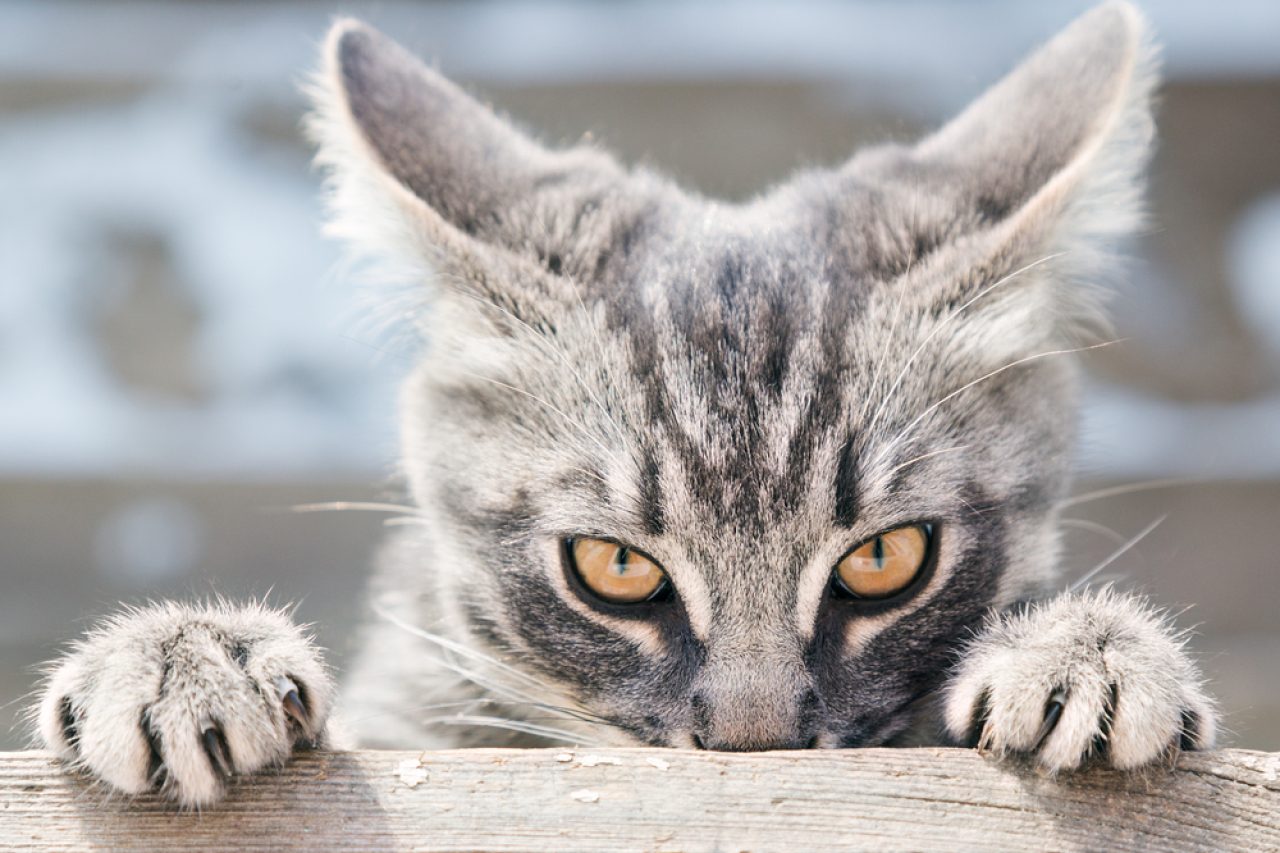
Jealousy is a common behavior in domesticated cats, and we’ve all experienced it. It’s normal for your kitty to change her mood when you’re spending time with other people or pets because she wants you and your affection all for herself. These mild bouts of jealousy are completely normal.
However, the issue arises when these bouts become physical and verbal. A bipolar cat will become a lot more aggressive when she’s feeling jealous. Don’t be surprised if her anger and uneasiness turn into attacks on you, your pet, or anyone else you’re giving your attention to.
4. Aggression
There are a few ways a bipolar cat might exhibit aggressive behavior. She’ll show aggression with toys, food, or even during a petting session. All of these, however, are still often ignored or attributed to “cats being cats.”
For example, it’s normal for your kitty to hiss at you to let you know she’s hungry. However, if this aggressive behavior is followed by destruction, it should be a cause for concern. She’ll be agitated if you don’t feed her when she wants it, and she might show some destructive behavior to get your attention.
If you’re looking for ways to help your kitty let off some steam, playing with toys is always a good idea. It will stimulate her senses and hunting instincts.
Although it’s normal for your cat to be a bit rougher when playing, a bipolar kitty might hiss and snarl at her toys. She might appear uneasy and unhappy with you playing with her.
The last thing you’d expect is for your cat to get angry in the middle of a petting session, but that often happens if your kitty’s dealing with bipolarity. There’s no particular spot that could trigger this, but there’ll be random bouts of anger when you’re scratching her.
Although it’s normal for your cat to show you when she’s done with receiving pets, it’s never okay for her to snarl at you.
5. Destructive behavior
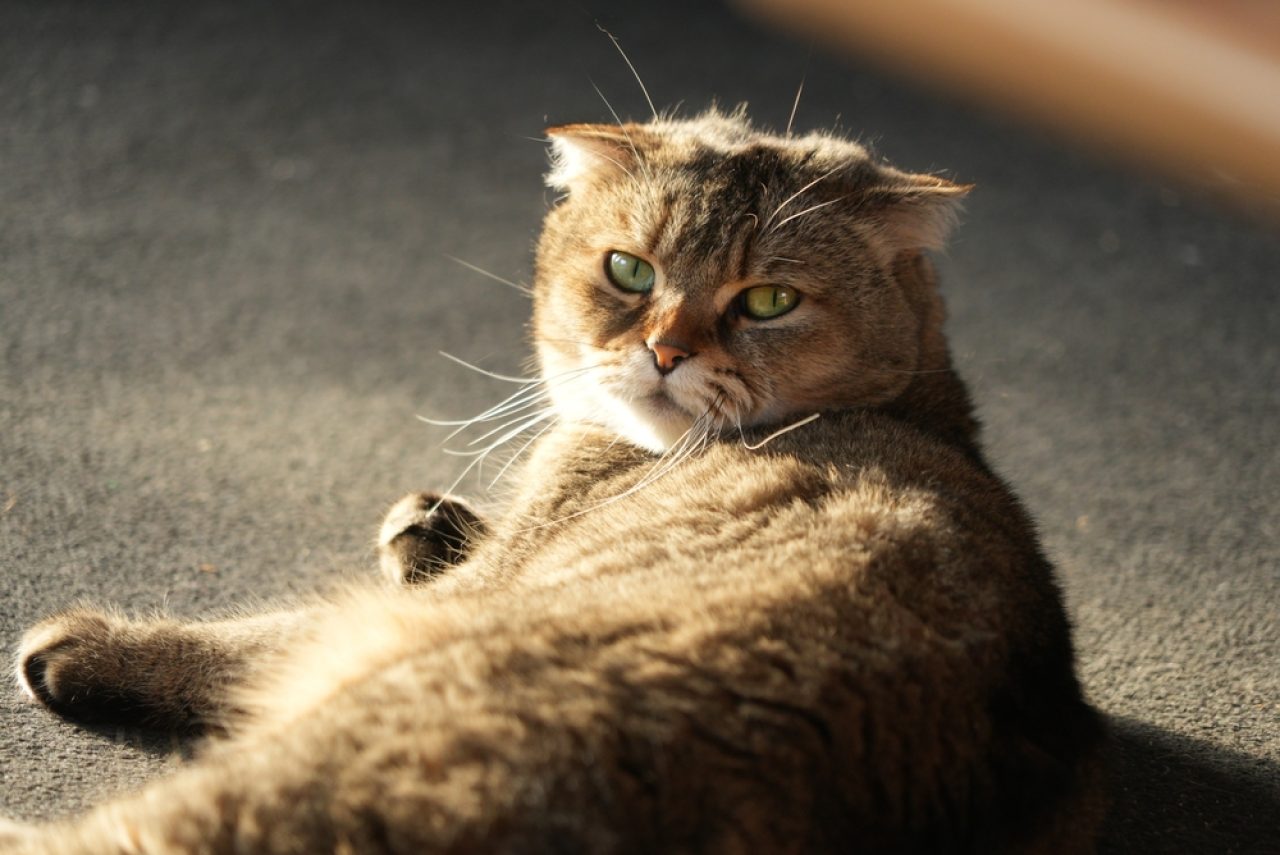
If you’re wondering can a cat be bipolar because she’s always running around your home after her meal, we’re here to tell you it’s completely normal. A healthy kitty will get zoomies and play around after finishing her favorite meal, just like us humans do (sometimes).
However, if your feline friend becomes destructive and aggressive after eating, it shouldn’t be ignored. A bipolar kitty will go crazy after eating, running around the house, destroying your furniture, and hissing at random toys and objects.
6. Doing business outside the litter box
Lots of people love keeping cats because they’re easily trained to use a litter box. However, the changes in their behavior often lead to them peeing and pooping outside of it. It would be almost impossible to train a bipolar cat to use her toilet area.
She’ll be intentionally peeing and pooping outside of her litter box. Since this often happens due to other issues as well, it’s important to rule them out first.
How to deal with bipolar disorder in cats
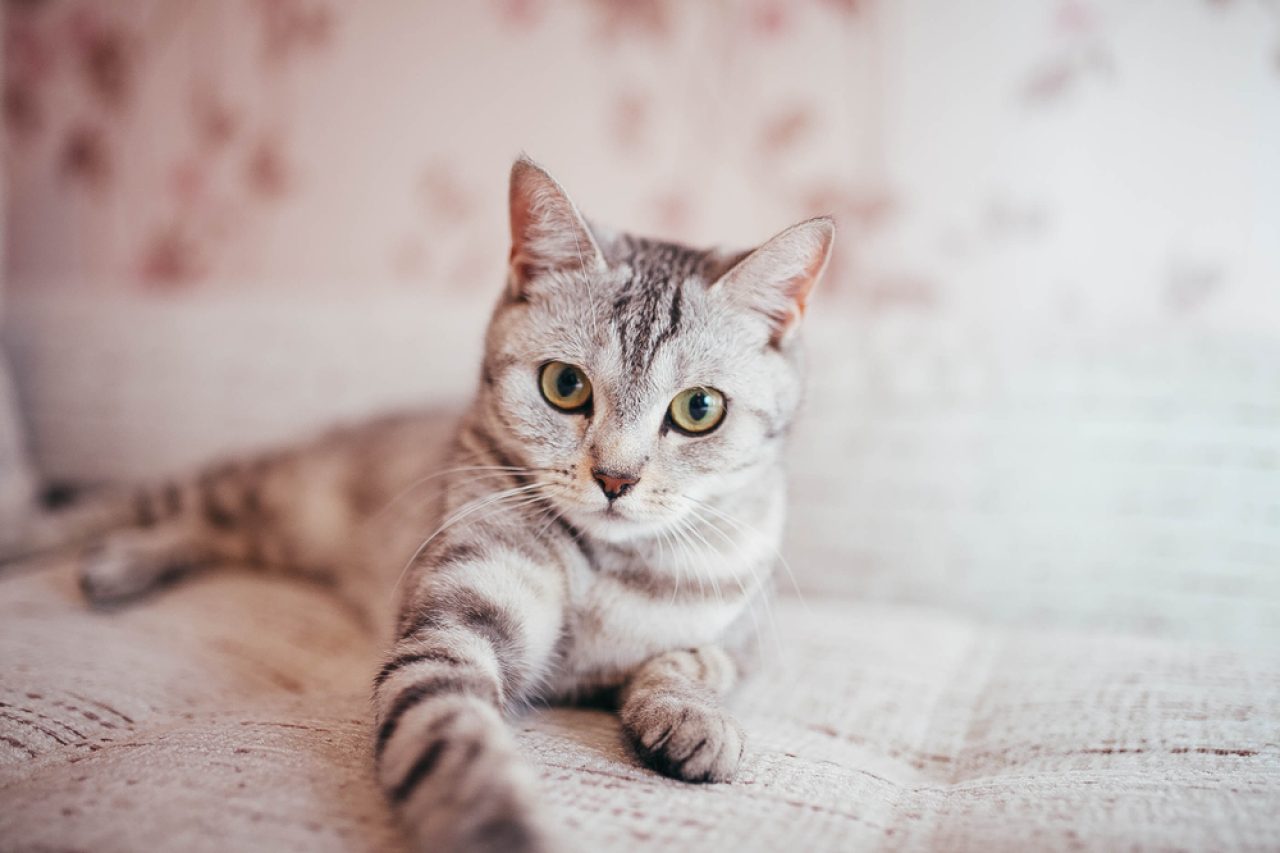
So, now that you know that cats can be bipolar, it’s important to learn how to deal with this condition, especially if your kitty might be suffering from it. She’s going through a lot already, and finding a way to help her is the best thing you can do for your little fluff.
The treatment for bipolar disorder in cats depends on its severity. The vet might prescribe your kitty small doses of Prozac as her first line of treatment. It’s crucial that you consult a vet first, as you should never give any kind of medication to your cat without speaking to a professional first.
Although medication will make your feline a lot calmer, it’s not a magical solution to all her problems. You might have to make some changes, too. For example, you’ll need to be patient and gentle with your dear fluff. Talk to her gently, and leave her alone when she gets a bit more aggressive.
It’s hard to accept the idea that your cat might be bipolar, but it’s not impossible to live with her. You just have to give her some space and know that your kitty loves you, even if her behavior might make you question it.
Your kitty might be imitating you
Have you ever noticed how cats start acting like their human parents? That’s not just a coincidence. The study conducted by the University of Messina’s Faculty of Veterinary Medicine states that indoor cats, who spend most of their time with their humans, develop a lifestyle that mimics them.
Our feline friends are highly intelligent creatures of habit. They’ll quickly adapt to your sleeping schedule, learn where and when they should eat, and where you keep their food. Because of that, kitties often copy our behaviors, too.
Since we spend so much time with our feline besties, they start imitating our personalities. Although it’s adorable, it can make your kitty start acting out of the ordinary, which some people confuse with bipolar disorder. Spending more time with other pets can help her go back to her roots.
Is there a way to avoid bipolar disorder in cats?
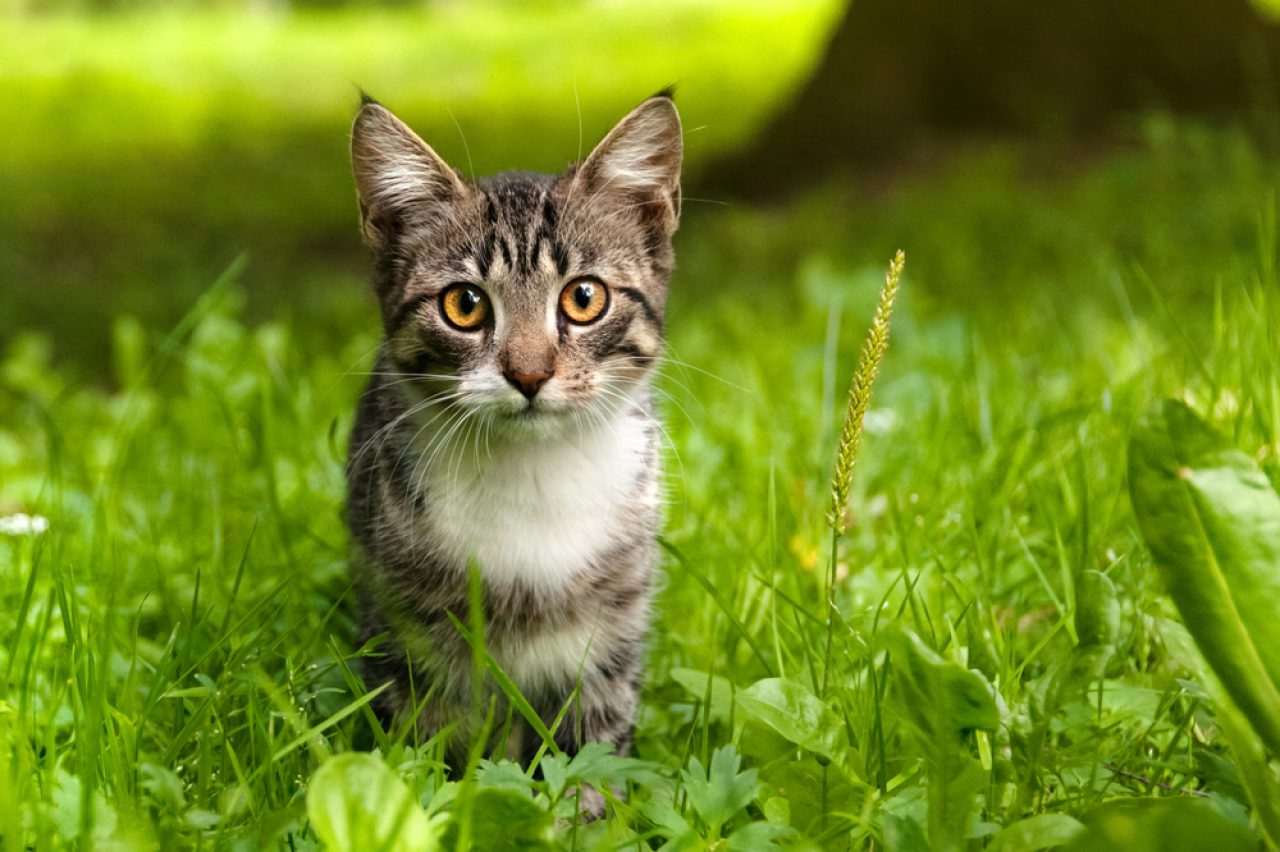
Unfortunately, there’s no way to prevent this condition in cats. It’s still a pretty mysterious illness, both in humans and felines, where a lot of questions still remain unanswered. Although we know that the disorder affects the brain because of a chemical imbalance, science is still trying to understand its cause.
Although you can’t prevent it, today there are many medications and treatments that can help both humans and our feline buddies live a normal life with this condition.
It’s crucial that you don’t diagnose it without your vet’s opinion, and never try to treat it on your own. With a few changes in your kitty’s lifestyle, she’ll be a happy little ball of fluff keeping you company for years to come.

